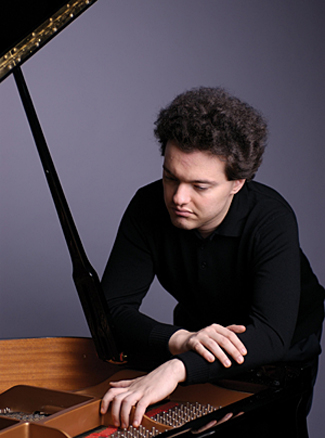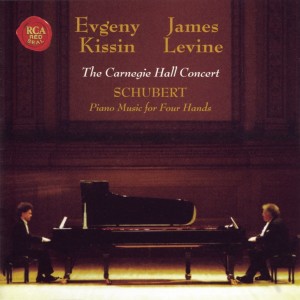Concert Review: Pianist Evgeny Kissin — An Extraordinary Recital
In my experience, few leave an Evgeny Kissin concert disappointed.
By Susan Miron
World-renowned, Russian pianist Evgeny Kissin has been featured on the Celebrity Series of Boston five times, including a remarkable two-piano appearance with James Levine (available as a CD). I’ve heard most of these recitals, but this Sunday Kissin’s brilliant playing still astonished me—and a standing-room-only audience. Kissin’s concert at Symphony Hall might well have been the most extraordinary piano recital of the year.
From the moment he was permitted (at the age of 14) to venture out of Russia, Kissin struck all who heard him as one of the most amazingly technically quipped pianists they had ever heard. Conductor Herbert von Karajan is reported to have cried and uttered one word, “genius.” One of the most renowned child prodigies of his time, Kissin in mid-career remains as dazzling as he was when he burst upon the scene.
The program Kissin brought to Symphony Hall is one he’s been playing around the world, and tempermentally it suited him well. At 41, Kissin looks half his age. Anything he had to prove as a performer he had accomplished as a teenager. Every possible musical honor has been bestowed upon him, and his devoted audiences, filled with Russian speakers, come to hear him regardless of what he’s playing. In my experience, few leave a Kissin concert disappointed. He is the least flamboyant of personalities and barely smiles while taking his many bows. He seems happiest when playing, rather than facing his awestruck admirers wildly cheering him on.
Kissin chose to open his recital with Haydn’s Sonata No. 59 in E-flat Major, one of the more familiar of the composer’s piano works. The program notes by the always-excellent Steven Ledbetter might have been speaking about Kissin: “Haydn charms us and keeps us alert for surprises at each turn.” The grace, elegance, and extraordinary clarity of Kissin’s playing beguiled throughout this and the four familiar and beloved Schubert Impromptus from Op. 142 and Op.90 later in the program.
Beethoven’s amazing, thrilling, and mind-boggling last piano sonata, No. 32 in C minor, Opus 111 was, for me, the highlight of Kissin’s grueling program. I’ve heard this piece countless times—it is my favorite of all the Beethoven sonatas—but I felt I was hearing it anew. Kissin plays it by glorifying its architecture through superb refinement and a tasteful proportion of tempo and dynamics. Often the left and right hands were not exactly synchronized, producing a delicate rubato. Kissin is not one to look like he’s letting loose; he sits rather still and keeps his eye on the fingers. The drama he produces is a product of his rational approach to the music; his is one of the most formidable techniques since Vladimir Horowitz.
To these ears, Kissin’s Schubert was better than the performances of many pianists who are known for their Schubert playing, full of his customary, tasteful virtuoso flair, warmth, and stylistic brilliance. Finally, Kissin played the living daylights out of Franz Liszt’s Hungarian Rhapsody No. 12 in C-sharp minor. The Hungarian Rhapsodies are among the most technically monstrous in the piano literature—Liszt himself was a brilliant pianist—filled with passages of great beauty, mercurial moods, and unabashed lyricism. Kissin played with phenomenal control and drew on an expansive palate of colors.
The audience went wild. Kissin played the perfect delicate encore—Giovanni Sgambati’s transcription of the “Dance of the Blessed of the Spirits” from Gluck’s Orfeo ed Euridice, with some of the most heartbreaking melodies anywhere. Perfection. The audience wanted—but did not expect—more. Kissin actually broke into a smile, his first of the afternoon. He was just warming up! Four more dazzling showpieces—Liszt’s Transcendental Etude No. 10, Schubert/Liszt Die Forelle (a virtuoso arrangement of the theme used in Schubert’s Trout Quintet), Chopin’s Prelude 24, and Beethoven’s hilarious “Rage Over a Lost Penny”—followed. Bravisimo to Kissin, who rewarded his loyal fans with a concert none present will soon forget.
Susan Miron, a harpist, has been a book reviewer for over 20 years for a large variety of literary publications and newspapers. Her fields of expertise were East and Central European, Irish, and Israeli literature. Susan covers classical music for The Arts Fuse and The Boston Musical Intelligencer.




Evgeny Kissin may not smile visibly very often, but I do, when listening to his fingers moving at any tempo and any time to any of his interpretations. Long life Monsieur Kissin, May you live to be 120 years old ?